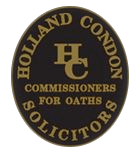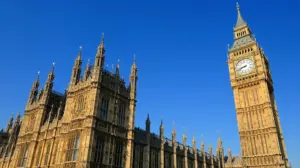The Law Society has noted its disappointment with the lack of progress in establishing a Judicial Council. Responding to reports on 14 February 2019 of correspondence between Justice Minister Charlie Flanagan and Chief Justice Frank Clarke, the Society said it had welcomed the findings of the Personal Injuries Commission (PIC) that the proposed Judicial Council should draw up appropriate personal injury awards guidelines.
This remained the appropriate way for any review of the level of awards in this jurisdiction to be carried out. “It is disappointing to note that the Judicial Council has made no progress. However, the failure to progress this important legislation should not result in a knee-jerk reaction that could have unintended and unforeseen negative consequences,” the Society said.
Media reports have suggested that an interim ad hoc committee made up of judges, Courts Service and Department of Justice staff has been proposed by the minister, and that it would preside over the recalibration of current guidelines in the Book of Quantum. In a letter to the Chief Justice, seen by certain media, Mr Flanagan asked whether it would be possible for a small number of judges with expertise in personal injuries to participate in a group with a view to revising guideline award levels. The group would include representatives of the Personal Injuries Assessment Board and, possibly, the Department of Justice. The minister wishes the judges to consider recent Court of Appeal rulings and part of a 2018 report by the PIC, which found awards for minor injuries were almost five times the level of those in Britain.
The Law Society has advised that “such proposals, if correct, should be approached with extreme caution”.
It is important to preserve the separation of powers, it said. “In particular, given that the State is a defendant in many compensation claims, it cannot be impartial when assessing the appropriate level of damages,” the Society warns.
“The constitutionality of such a practice will also come into view if damages in a Book of Quantum today are much higher than those, say, in six months, as claimants, who reject a PIAB award and who relied on the original book, will inevitably receive less damages than they had refused, and will fall foul of the existing statutory rules, which do not allow costs awards in those circumstances.
“Injury victims are entitled to be treated fairly by the courts, and the Book of Quantum cannot create fundamental injustice. “Many medical practitioners hold the view that, in some cases, soft-tissue injuries can be more difficult to treat than, for example, a fracture.
In addition, different people are affected in so many diverse ways, even by injuries that are not chronic. It simply is not possible to generalise about the effect of soft-tissue injuries.” The Society believes there is absolutely no evidence that reducing damages will result in lower premiums. Insurance premiums in Britain, where damages have always been much lower, have been consistently higher, on average, than in this country !
“The effect of reducing damages will merely be to take from the pockets of injured victims of negligence and place into the pockets of an increasingly profitable insurance industry,” the Society concluded




